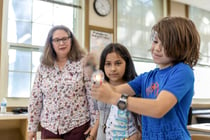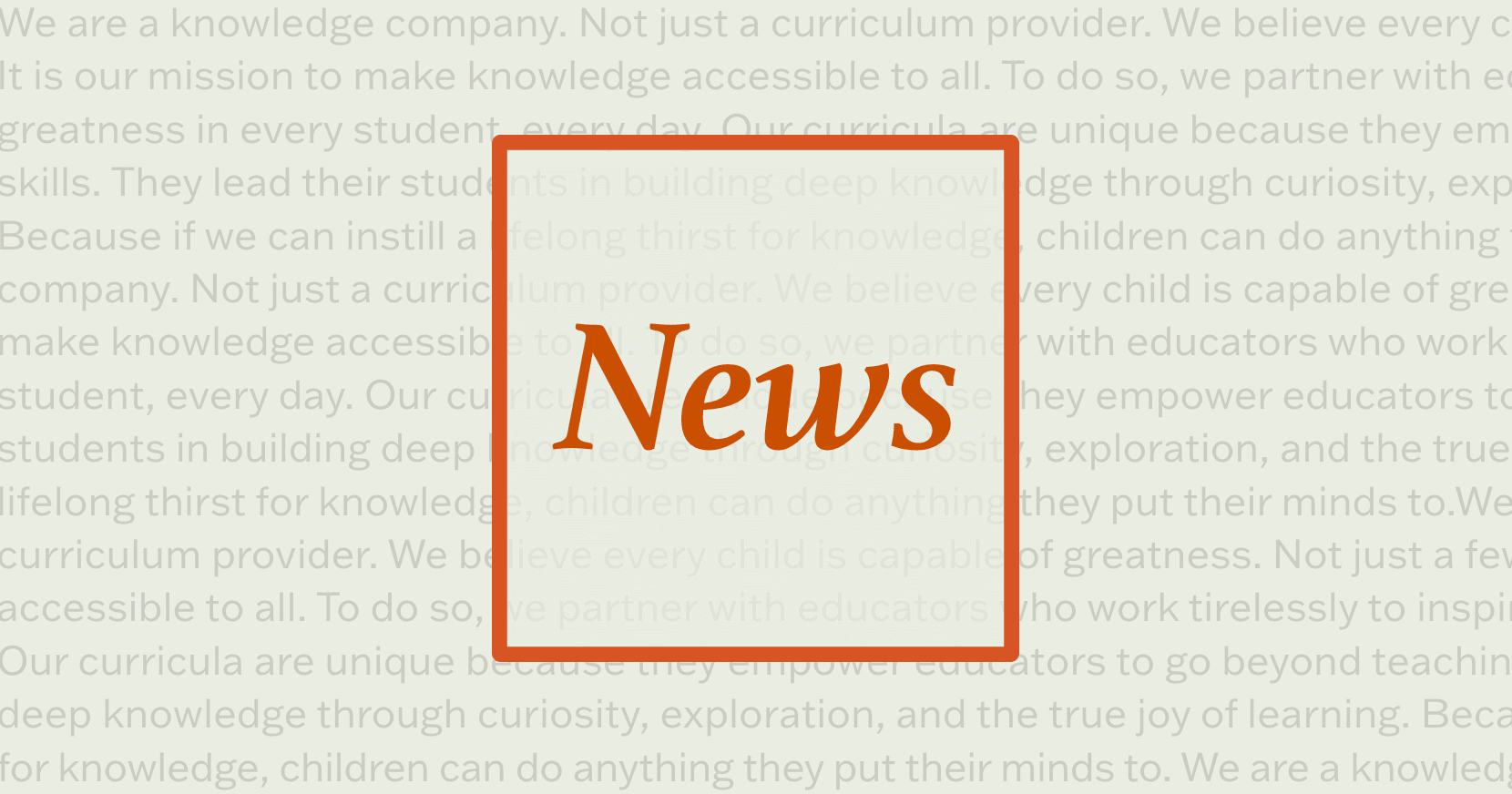Posted in: Aha! Blog > Wit & Wisdom Blog > Literacy Writing Instruction News > Bringing Equitable and Engaging Writing Practices to the Elementary Classroom
Tanisha Washington, a regional director of implementation services for Wit & Wisdom®, shares her story of getting elementary students to write with joy and skill while they build knowledge on critical topics, in a new Edutopia blog post.
In the post, Washington describes how she struggled as an elementary school teacher in Washington, DC to get students to enjoy writing and develop as strong writers. At the time, she hadn’t yet connected her reading and writing lessons and was instead asking students to write about their own experiences, such as what they did over the weekend or about a small moment in their life. She noted that students struggled with the responses, and the resulting work often highlighted inequities among students and gaps in their performance.
Washington, who eventually became assistant principal at her school, was part of a team there that went on to adopt Wit & Wisdom, in which reading and writing assignments are intertwined and students spend time learning about important topics related to history, culture, science, art, and more. She says that Wit & Wisdom’s approach made a world of difference when it came to her students’ writing.
“They enthusiastically participated in thoughtful discussions on what they read and dove into related writing assignments,” Washington writes. “Over time, our learners improved in literacy. We saw improvements in the quantity and quality of student writing.”
Washington describes in Edutopia how, during a grade 4 unit on the American Revolution, students read texts like Liberty! How the Revolutionary War Began and excerpts from A Young People’s History of the United States and then wrote an essay on whether the colonists were justified in declaring independence from Britain. “They were more eager and excited to write, and their confidence grew,” Washington explains.
She shares tips for teachers on using this approach. These include working with your school to adopt a knowledge-building curriculum; leveraging essential questions to spark student inquiry and foster critical thinking; valuing fiction and nonfiction; exploring the use of audio and video clips to give students various access points for learning; and collaborating with resource teachers—such as art, music, and science teachers—to integrate lessons and bring them to life in new ways.
Washington is now an implementation leader for Wit & Wisdom. We’re so glad to have her as part of our team and feel grateful she can share her experience and wisdom with educators across the country, both in schools that have adopted the curriculum and by sharing her writing with Edutopia’s broad readership.
Submit the Form to Print

Chad Colby
He has served in three state education agencies, which included time assisting New Mexico’s secretary of education with the adoption of new education reform initiatives; serving as the communications director at the Washington, D.C., Office of the State Superintendent of Education; and working as an assistant to the Florida Commissioner of Education. Chad also worked at the U.S. Department of Education from 2004 to 2009 and served as the deputy assistant secretary for media affairs and strategic communication during his final two years there. Chad is a native of Bloomington, Ill., and graduated from Florida State University.
Topics: Literacy Writing Instruction News








